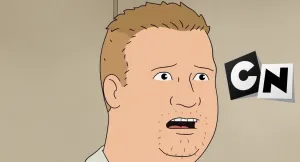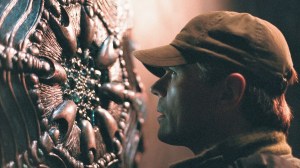Writing a movie is always a difficult task, but it’s especially tricky when that movie is part of an ongoing connected universe and has to adhere to rules and story threads presented in other movies. Of course, that process gets even harder when the movie is supposed to wrap up multiple movies at once. Avengers: Endgame essentially brought a decade of Marvel Studios filmmaking to a close, and the team of directors Joe and Anthony Russo, writers Christopher Markus and Stephen McFeely, Marvel president Kevin Feige, and several other producers worked closely together to make sure everything in the movie ended in just the right way.
Videos by ComicBook.com
Discussions about the finale of the Infinity Saga took place over the course of years, with some things decided upon long before others. Such was the case with Steve Rogers. Endgame concluded with Rogers staying back in time to have a life with Peggy Carter, appearing in the present as an old man, passing his shield to Sam Wilson. During a recent Q&A at the New York Film Academy, Feige was asked about the creative process behind moments like Steve’s, and who actually made them, the producers or the writers. in the case of Old Man Steve, the moment was a collaborative effort, and one that was made before Avengers: Infinity War was even scripted.
“In that case it was all of the above, because we were all together in the room as it was being put together on those two movies,” Feige explained. “Those two movies were developed at the same time. And it was relatively early on, before Infinity War had even been completely written, that the idea came up – and I think it was Markus and McFeely, I don’t remember exactly – to have Old Man Steve on the bench and to hand the shield over, and to end the movie with two things. One, with Cap gone, out of the picture now, which is where he was headed, but also getting his happy ending. Getting his happy ending with Peggy and getting the dance and the date that he didn’t get at the end of his first movie.”
“When you have an anchor of an idea like that, and you’re like, ‘We think this is the perfect ending,’ a lot of the movie can be in shambles and you’re feeling okay,” he continued. “Because it’s worth working on because you know where you’re headed. So most cases, it is collaborative, the way these ideas come up.”
You can watch the full interview with Kevin Feige in the video at the top of the page.








